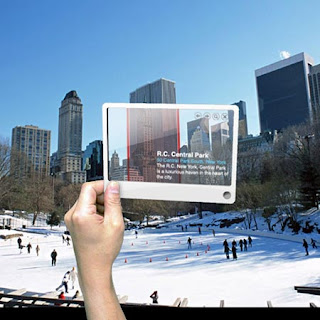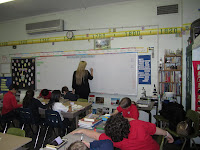WOW, this is the word that comes to mind when i relate this class to the class that was previously observed. Today we did observe three different grade levels and the difference in the environment from the 4th grade and the previously observed 5th grade was astounding. The students in this class which was the first one observed for the day came in and were very loud and did not settle down very fast. The teacher had to keep reminding many of the students to stay on task and to focus. This is very different from the 5th grade class whom were seated and highly focused on the lesson. There was an aid in this classroom, she spent the majority of the time walking around reminding students to be quiet and pay attention.
The main idea for today's lesson is natural resources, the teacher did a great job of activating their knowledge about this subject. She initiated a conversation about trees and basically if we didnt have trees we wouldnt have........
Student responses:
Air, Paper, Apples, and then they got a lot more in depth talking about the food chain. If we didn't have trees we wouldn't have specific animals that depend on the trees to eat and then we wouldn't have food to eat.
One boy stated- It would be more then food! if we didn't have trees we wouldn't have air so we wouldn't even be alive.
The teacher gave a lot of
feedback and
praise during this entire lesson, even if a students response seemed out of the box she did not criticize them. Instead she tried to understand why they came up with that answer and then corrected their thinking.
Other praise that was observed was simple phrases such as "Good job ______ I really like how you are taking notes neatly" This informs the student that they are doing a good job, but also informs other students what she expects
THE PROBLEM!
What are our natural resources that are both living and non living. The students gave a variety of answers. Some of the answers the students gave were things like pencils and jeans. To understand their thinking the teacher engaged them in a conversation about it and described that pencils and jeans are actually not natural resources BUT they are made out of natural resources. Getting the students back on track and understanding there thinking is a huge part of being about to properly educate them. As an educator you want your students to understand the concepts, therefore placing yourself in their shoes so that you understand their alternative conceptions can help to be the best teacher possible.
Something I noticed that I really liked and shows great teacher qualities is she saw a student that was making noises and not paying attention. He was sitting close to me and i had noticed he did not pay attention for most of the lesson, I did not know why, but after the teacher asked him the question she did I feel she shows how important it is to get t o know your students. She first called on his name and asked a very complex question, in fact i did not even know what she was referring to. I though that he was going to have difficulty answering since he was not paying attention, I WAS WRONG! He got very excited and answered her question with a very clear and in depth answer. She quickly grasped his attention and i feel as though this boy may be bored in the classroom. That answer was very advanced and shows my initial judgment of why he was not paying attention was wrong.
Third Grade class!
This class even though they were younger quickly got to their seats and the teacher was able to start the lesson without constantly reminding the students to focus. The lesson was about Measurement, and she activated their prior knowledge with a simple question, "yesterday we discussed measurement, can you tell me what types of measurement we used?" This shows how the lessons should flow together and is why it is importyant to plan ahead. The teacher went over specific measurements one day and introduced what they were and this class she was taking it one step further. The hook was simply going through the measurements that we talked about in the previous lesson and WHAT they measure (length).
THE PROBLEM! What tools can we use to measure matter.....
We have already discussed rulers and a scale, but how would we measure this (the teacher held up something that resembled a key, which had lots of different side and even wholes in it. she went through a series of steps of how to do this, by measuring its volume, the amount of space that it takes up. She did this used a granulated cylinder and water. By placing the key into the water you measure how much it rises, this number will give the students their answer.
Be a good investigator! the teacher made sure to show the students how to take good measurements. They need to be eye level, and then talked about why that is important.
FIFTH GRADERS
The last lesson of the day was the 5th grade science class, the teacher made the students aware that we would be coming into the class to teach them a lesson on chapter 12. She wanted to make sure that they understood the concepts of this chapter so that they can make
connections. They will be making those connections during our lessons. We will need them to have prior knowledge of these concepts so that when we come in to teach they will have
prior knowledge to relate back to. The students took time to break down the concepts and talk about examples of each, this provided me with feedback on what the students already know about the concepts and what they need to investigate further.











































